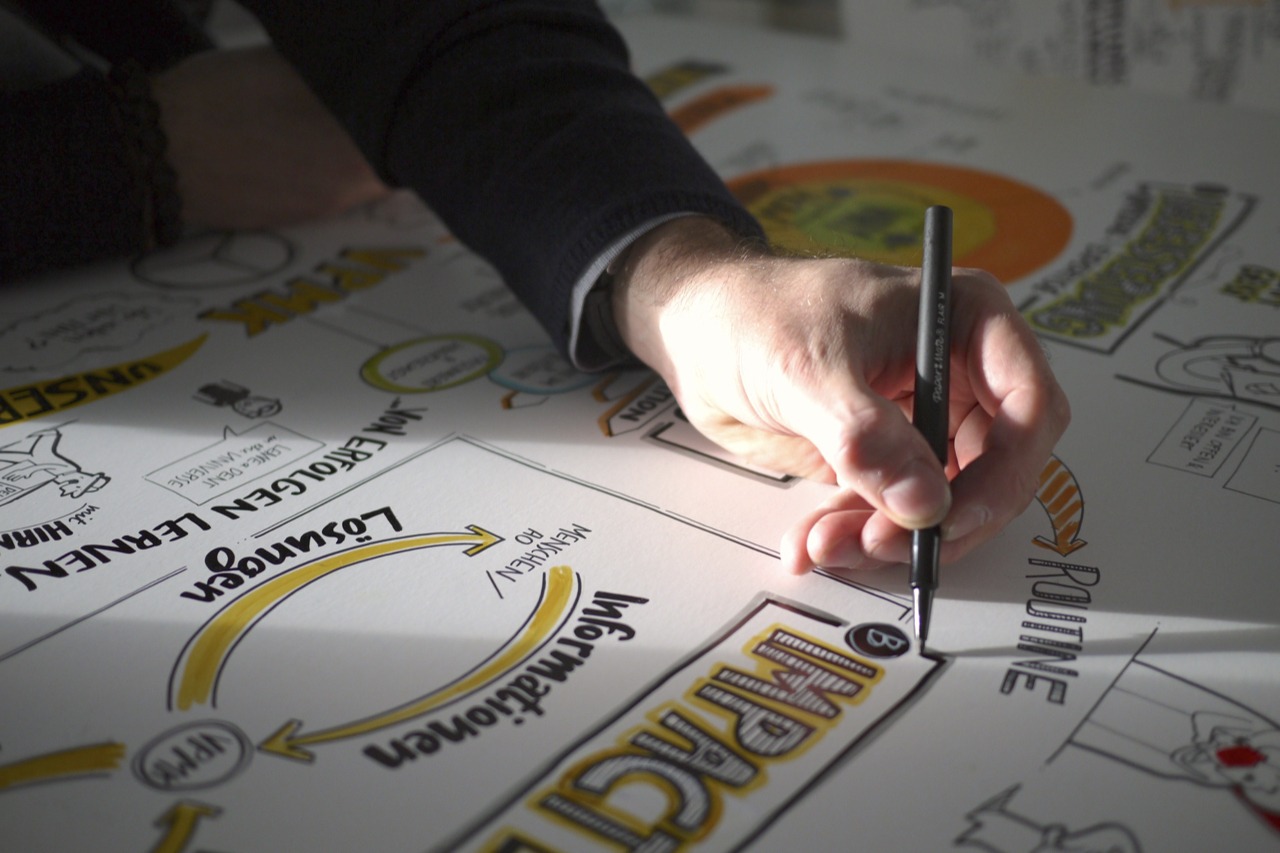
Right from the beginning of this project, it was clear that we would only be successfully impacting culture, if we develop results together with the department and not on our own as external consultants. Therefore, we formed a task force consisting of team- and marketing leads. The latter would be close collaborators and involved in all decisions made throughout the process. As the basis of our work, we first needed to unearth all aspects influencing culture, motivation, work modes, self-perception and perception within the organization. Therefore we ran a series of workshops with the task force, one-on-one interviews within the department as well as with leads of adjacent departments and management of the larger business unit. During this understanding phase, we looked deep into individual and collective perceptions, roles, opportunities, and challenges. The holistic mix of methodologies used ranged from strategic management to organizational change, and from psychology to design thinking.

After analyzing and condensing the collected knowledge, we set out to define a first draft of vision and operating model. In more workshops with the task force, we challenged and iterated our resultsbefore we defined the department’s brand purpose, value proposition, and role within the organization. Furthermore, we established guidelines for new, customer-centric work principles that would help the marketing department achieve its external goals.
Almost 20 measures were designed to implement the new brand purpose, brand positioning and customer-centric working principles in a 360-degree fashion. These measures were aimed to change culture, operation internally and with business partners, as well as to make visible the new position towards stakeholders within and outside of the department.
We conducted a team training for the department’s employees to reflect on and adapt to the new guiding star and newly developed work principles. In a workshop with all of the departments employees we introduced the new guideline and principles and applied the them within the different teams to prototypical projects.

Based on brand identity and brand purpose Rlevance was able to create a new culture and work principles for the Mercedes-Benz Marketing department that changed their self-perception and allowed them to redefine their relationships with Mercedes-Benz’s other departments and with customers. On top of that, this new, more cohesive culture served as a source of inspiration and motivation for team members to work together towards a greater goal. The result: an agile, motivated department ready to face the marketing challenges of the 21st century.
Are you faced with similar corporate challenges? We would love to hear about them.